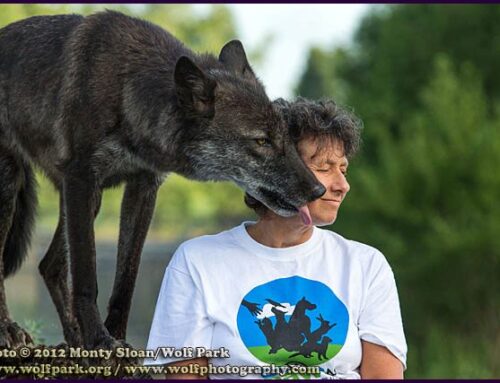
The conversation drifted to fostering a dog as people shared their experiences of caring for dogs that were destined to leave them for homes of their own. Finding good foster homes is a challenge for many rescue groups but can mean the difference between life or death for many dogs. Many of us admitted to failing at fostering, the dog that was suppose to be with us for only a short time was still snoozing on the couch, years later. It’s not always easy to give up these dogs.
Some foster care givers might worry about a dog forming too strong an attachment to them. Emotional attachments are responses to a person, place, thing or experience and usually are the result of positive associations (though not always but I’m not a psychologist so won’t comment on that phenomenon). I remember how difficult it was to get rid of my old VW Rabbit which I had driven cross-country 3 times during my years at college in California. It was just a car, one with a rusted out fuel tank at that, yet I hated to see it go. I loved that car and suspect I’d love it even more today with its diesel engine and almost 40 miles to the gallon fuel efficiency. A new pick-up truck helped get me through that loss.
I think of bonding as a skill and being given the opportunity to develop that skill is important. Attachment and bonding are about building relationships and having the neurochemistry in place to assure that it can happen. There are ways in which brains can go awry when it comes to forming attachments with things as in the case of hoarders, or perhaps when people love their cars. The consequences to humans who spend their infancy and early childhood without the benefit of developing bonds with caregivers can be tragic. And there are fearful dogs who are able to form attachments to their primary caregivers but not easily with other people.
The first time I met my (not fearful) border collie Finn I paid attention to how he responded to the people and dogs around him. He was friendly and outgoing with the strangers, polite and appropriate with the dogs but what clinched the deal for me was how he behaved with the woman who had been taking care of him. He was showering her with attention and face licks. I knew that if he was able to bond with her he’d bond with me. We are by my count his seventh home, including the three shelters he’d ended up in and unless he was born at the first, he’d lived with at least three other people or families. However disruptive that might have been for him, somewhere along the way he’d learn to form attachments with humans. When he came to live with us he was an old hand at it and I’m grateful to the people who handled him so compassionately.
So while you might want to guard your own heart when it comes to fostering a dog, help them develop the ability to connect and trust humans, it’s a skill that will serve them well when they find their forever home.





